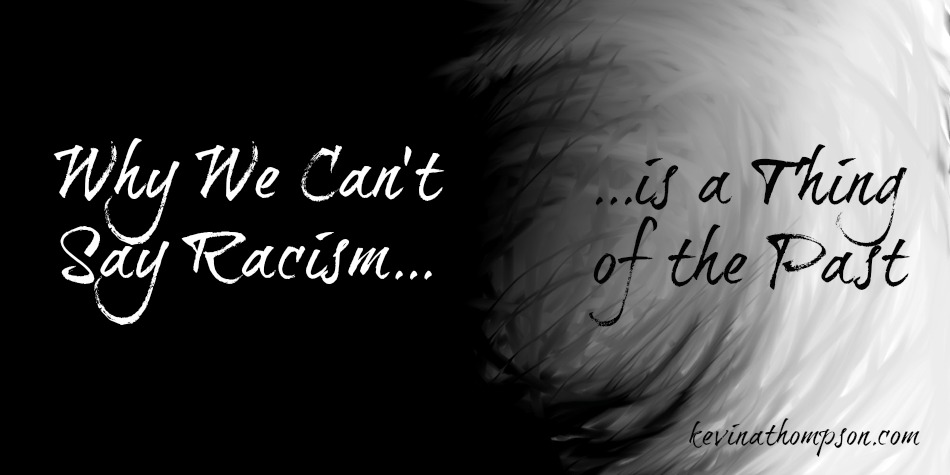The Bahá’í Faith, a global religion founded in the 19th century, espouses the principle of the oneness of humanity. Central to its teachings is an unequivocal rejection of racism in all its forms. To explore whether racism is a relic of the past, one must first examine the profound implications of Bahá’í teachings on this enduring social malignancy.
Historically, racism has been woven into the fabric of societal interactions, manifesting through overt discrimination as well as insidious microaggressions. The Bahá’í perspective asserts that such prejudices are not merely historical curiosities but persistent evils that must be confronted with both conviction and compassion.
At the heart of Bahá’í theology lies the concept of the oneness of humanity. This principle posits that all people, irrespective of their race, ethnicity, or cultural background, are equals in the eyes of the Creator. Therefore, the question arises: if all humanity is created equal, how can racism persist in contemporary society? The insights gleaned from Bahá’í teachings reveal that the phenomenon of racism is deeply entrenched, manifesting as systemic inequities, social injustice, and cultural misunderstandings.
To comprehend the complexities of this issue, we must explore several dimensions where Bahá’í teachings intersect with the problem of racism. Firstly, one must consider the conceptual framework of race itself. The Bahá’í Faith emphasizes that race is a social construct, rather than a biological determinant. It is critical to discern that while physical differences may exist among individuals, these differences do not confer superiority or inferiority. The teachings encourage a holistic view that values diversity as a source of richness rather than as a basis for division.
Moreover, the historical context of race relations has fostered systems of oppression that continue to reverberate through modern cultures. The Bahá’í Faith calls for active engagement in the promotion of social justice. The implications of this engagement are twofold: not only does it entail advocating for policies that dismantle systemic barriers, but it also requires a transformation in individual attitudes and collective consciousness. It is insufficient to merely condemn racism; one must actively work towards establishing equity and understanding among disparate communities.
Another crucial aspect involves education. The Bahá’í teachings emphasize the role of education in eradicating prejudice. To combat racism effectively, individuals and communities must be equipped with knowledge that dissects and challenges stereotypes and biases. Educational initiatives that encompass the history and contributions of diverse cultures are vital in fostering a sense of global citizenship. By empowering individuals through education, societies can transcend antiquated notions of race and cultivate an appreciation for the shared humanity among all people.
Furthermore, the Bahá’í perspective underscores the importance of unity in diversity. Racism generates discord, whereas the Bahá’í teachings advocate for harmonious relationships among individuals of different backgrounds. Initiatives aimed at community building, interfaith dialogue, and collaborative projects can break down barriers. When people engage in meaningful interactions, they can dismantle preconceived notions and foster empathy. Unity does not imply uniformity; rather, it celebrates the distinctiveness that each culture and individual brings to the global tapestry.
The role of leadership in combating racism cannot be overlooked. The Bahá’í Faith espouses that true leaders are those who serve their communities with integrity, humility, and a commitment to justice. Leaders must exemplify the principles of equality and fairness, not only in their rhetoric but also in their actions. This commitment to social change must infiltrate every level of society, from grassroots movements to powerful institutions. Transformative change arises from the confluence of visionary leadership and collective action against racism.
Nevertheless, it is crucial to acknowledge that despite the progressive nature of Bahá’í teachings, racism is deeply embedded within societal structures. Many adherents of the Faith might contend that simply holding a Bahá’í belief does not immunize one from unconscious biases or societal influences. Continuous self-reflection and community dialogue are imperative in identifying and addressing these biases. It is essential for individuals to engage in this introspective process voluntarily, for it is through such reflections that growth occurs.
Additionally, stories of triumph over racism can serve as powerful motivators for change. Bahá’í communities across the world have documented instances where collective efforts have led to meaningful advancements in racial harmony. These narratives, rich with lessons and experiences, provide hope and inspiration in the ongoing struggle against racism. Sharing such stories can galvanize action, encouraging individuals to partake in their respective communities’ efforts towards racial equality.
In conclusion, while the Bahá’í teachings declare the essential oneness of humanity, the question of whether racism is a mere relic of the past remains complex. Racism continues to be a persistent evil that manifests in various forms, necessitating ongoing commitment from individuals and communities alike. The teachings of the Bahá’í Faith not only challenge us to confront this issues but provide a transformative framework for action. Through education, unity in diversity, and proactive leadership, it is possible to strive towards a future where racial harmony supersedes division, paving the way for a genuinely united global society.
